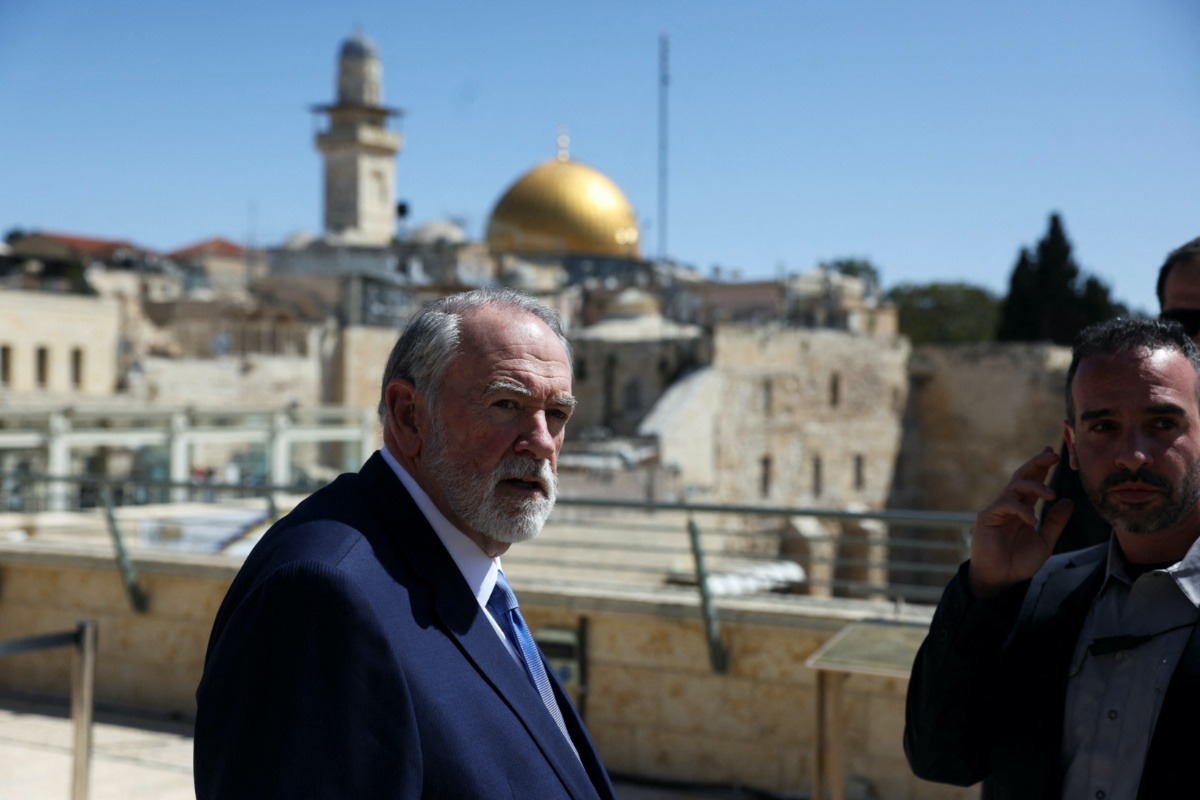Politics
Israel Excluded from New Gaza Aid Plan; Security Role Remains, Says US Envoy

The United States has announced that Israel will not be involved in a new Gaza aid plan, which will focus on security, not the direct distribution of aid. The UN has warned that Gaza’s residents face a possible famine, with Israel’s ongoing blockade and military operations. US Ambassador Mike Huckabee shared details of the plan, which will involve private companies and nonprofit organizations, but not Israel, in the aid distribution.
Gaza Faces Urgent Humanitarian Crisis
The United Nations has raised alarms about the potential for famine in Gaza, where over 2 million people are already struggling with severe shortages of food, water, and medical supplies. The situation has worsened after Israel’s military operations against Hamas, which have devastated Gaza’s infrastructure and displaced many civilians. With a blockade in place and a broken truce in March, aid to Gaza has been severely restricted.
US Announces New Aid Plan
US Ambassador Mike Huckabee, speaking from the embassy in Jerusalem, confirmed that several partners have agreed to participate in the new aid plan. While he did not name these partners, Huckabee mentioned that nonprofit organizations would play a leading role. The plan will be managed by private companies to ensure aid reaches those in need. However, Israel will not directly participate in the distribution of aid, focusing only on providing military security in the region.
Huckabee stated that there has been a good initial response and highlighted the commitment of international partners. He added that both organizations and governments would contribute to the effort, but Israel would not be involved in managing the aid distribution.
Controversy Surrounding Aid Distribution
The plan has sparked mixed reactions. The Tikva Forum, a group that includes relatives of hostages held by Hamas in Gaza, criticized the announcement. They believe that aid deliveries should be conditional on the release of the 59 hostages still being held by Hamas.
On the other hand, Hamas has expressed concerns that the aid plan aligns too closely with Israel’s vision of militarizing humanitarian efforts. Hamas official Basem Naim warned that the plan would fail, emphasizing that local parties should avoid becoming tools in the Zionist occupation’s schemes.
Challenges and Criticism of Aid Distribution
Many European leaders and humanitarian groups have voiced concerns about Israel’s plan to outsource aid distribution to private companies. Israel has claimed that aid organizations, including the United Nations, have allowed Hamas to seize aid intended for civilians, using it to fund their own forces or sell it for profit. However, Hamas denies these allegations.
The United Nations Children’s Fund (UNICEF) criticized the plan, expressing concerns that it could worsen the suffering of children and families in Gaza. UNICEF warned that the new system could increase displacement and hinder aid access for those most in need.
Security and Logistics Challenges
Huckabee acknowledged the logistical challenges of delivering aid in such a volatile region. He stated that the aid plan will begin with a limited number of distribution centers, capable of feeding over a million people. As the plan scales up, the goal is to provide aid to up to two million people in Gaza.
Private security forces will be responsible for the safety of the workers involved in distributing the aid. Huckabee assured that everything would be done in accordance with international law, although he did not provide details on the rules of engagement for security personnel.
Mediation Efforts and Ceasefire Breakdown
Despite mediation efforts by the United States, Qatar, and Egypt, a new ceasefire in Gaza remains elusive. Israel insists that Hamas must disarm completely before peace talks can proceed, a demand that Hamas has rejected.
Hamas has expressed a willingness to release all remaining hostages from its attacks on October 7, 2023, if Israel withdraws entirely from Gaza and agrees to a permanent ceasefire. The October attacks resulted in the deaths of 1,200 people in southern Israel, and 251 hostages were taken back to Gaza. In retaliation, Israel’s military campaign has killed over 52,000 Palestinians, many of them civilians, according to Hamas-run health authorities.






